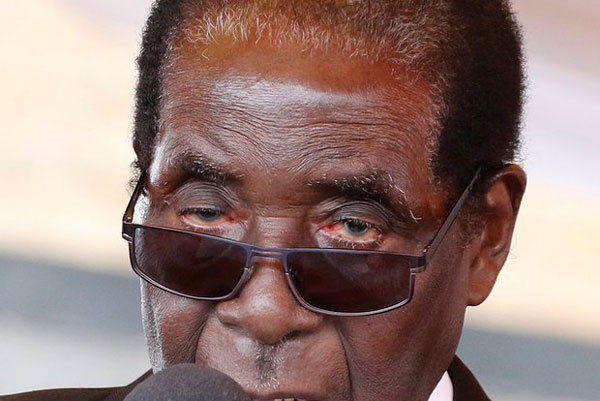
LEGAL and media analysts have blasted President Robert Mugabe for deliberately omitting the media and freedom of assembly laws among pieces of legislation that require urgent alignment with the Constitution.
BY VENERANDA LANGA
In announcing Parliament’s new legislative calendar last Thursday, Mugabe only cited the Constitutional Court Bill, Rural District Councils Bill, Traditional Leaders Bill, Prisons Bill and the Marriages Bill, as the only laws that required urgent attention.
The analysts said the decision was a deliberate ploy by Zanu PF to close media space and block opposition parties’ gatherings ahead of the 2018 elections.
Legal think-tank, Veritas, said while Mugabe described the alignment of laws with the Constitution as work in progress, the decision to leave contentious laws such as the Public Order and Security Act (Posa), the Access to Information and Protection of Privacy Act (Aippa) and the Broadcasting Services Act, raised a stink.
“Strikingly, there was no mention of a Bill to replace or amend the Urban Councils Act, a Bill to operationalise Metropolitan and Provincial Councils, or Bills to replace or amend the Public Order and Security Act, the Access to Information and Protection of Privacy Act and the Media Institute of Southern Africa-Zimbabwe (Misa) director, Nhlanhla Ngwenya, said Mugabe’s omission of critical alignments to Posa, Aippa and the Broadcasting Services Act vindicates their earlier suspicions that the Zanu PF government was not willing to democratise media space.
“They would rather have laws that erode freedom of expression on the legislative agenda of Parliament. Instead, he announced laws that will further impinge to freedoms and access to information under the guise of fighting cybercrime,” Ngwenya said. “Some years back Mugabe announced in Parliament that a Media Practitioners Bill will be crafted, but three years down the line we still have not heard of what happened to the draft Bill and neither did government shed the contents of the Bill to media stakeholders. Failure to align the freedom of expression laws with the constitution is meant to ensure government retains its illegal control of free flow of information.” He said what Zimbabweans needed to do now was to push for reforms so that the laws were aligned with the Constitution.
Media lecturer Alexander Rusero said the omission confirmed Zanu PF’s sinister plans to retain power through cherry-picking user-friendly laws for alignment with the new Constitution.
- Chamisa under fire over US$120K donation
- Mavhunga puts DeMbare into Chibuku quarterfinals
- Pension funds bet on Cabora Bassa oilfields
- Councils defy govt fire tender directive
Keep Reading
“Zanu PF is already preparing itself for the 2018 elections, and they have ensured they do not budge on Aippa, Posa and the Broadcasting Services Act. They want to ensure the political terrain will descend hardly on those opposed to Zanu PF’s political hegemony. They are government, but they are also a party that longs for continuity in power, and power longs for longevity. One would not expect a shock announcement by Mugabe saying he will repeal Posa or Aippa,” Rusero said.







